Back to the Basics - Cleanliness
Newborn calves are very vulnerable to disease, as they are born with an underdeveloped immune system. Calves are most vulnerable to disease immediately following birth until they have consumed colostrum and receive passive immunity. The immune system is not very effective until the calf is two to four weeks of age, and development continues until the calf reaches breeding age. This leaves the calf vulnerable to disease for a significant period of time. Cleanliness of housing and equipment, and biosecurity is important to prevent the spread of disease-causing pathogens.
Environment
Never overlook the importance of a clean environment. When a calf is first born, her gastrointestinal tract is designed to temporarily allow large molecules, including antibodies, to be absorbed through the small intestine. Ideally colostrum is the first meal and the calf gains immunity from antibodies being absorbed during this time. If the calf’s first meal is a mouth full of manure in the maternity pen, unfortunately pathogens will be able to pass through the open barrier in the small intestine, infecting the calf with disease.
As the calf grows a clean environment is still important. Calves start to develop antibodies four days after birth, but these antibodies don’t reach useful levels until 16-32 days of age, leaving the calf vulnerable to disease. Keep housing clean, well bedded, and well ventilated to prevent pathogen growth and calf illness.
Traffic Control
Biosecurity is important to prevent the introduction of new diseases or even spread of diseases on your farm. The following guidelines will help prevent the spread of disease on your operation.
- Be aware of who is coming and going.
- Ask visitors to clean and sanitize boots before walking your farm.
- Any purchased animals should be quarantined before introducing them to the rest of the herd.
- As you tend to and work your cattle, move from the youngest to the oldest animals.
- Avoid moving through sick pens before handling the rest of the herd.
Sanitation
Proper cleaning and sanitizing protocols will also aid in the prevention of disease. Milk is a great media to initiate pathogen growth as it provides pathogens with everything they need to thrive; moisture, food, and warmth. Work with your veterinarian or nutritionist to implement an effective protocol to clean and disinfect calf housing and feeding equipment.
Don’t forget about other equipment that may come in contact with your calves. Transportation equipment including carts, wheel barrows, trailers, etc. should also be cleaned and sanitized between uses. Feeders, waterers, buckets should all be cleaned routinely to prevent pathogen build up.
To read more about cleaning protocols visit our previous blog post here.
Written by Jarred Kopkey and Mariah Gull, M.S.
